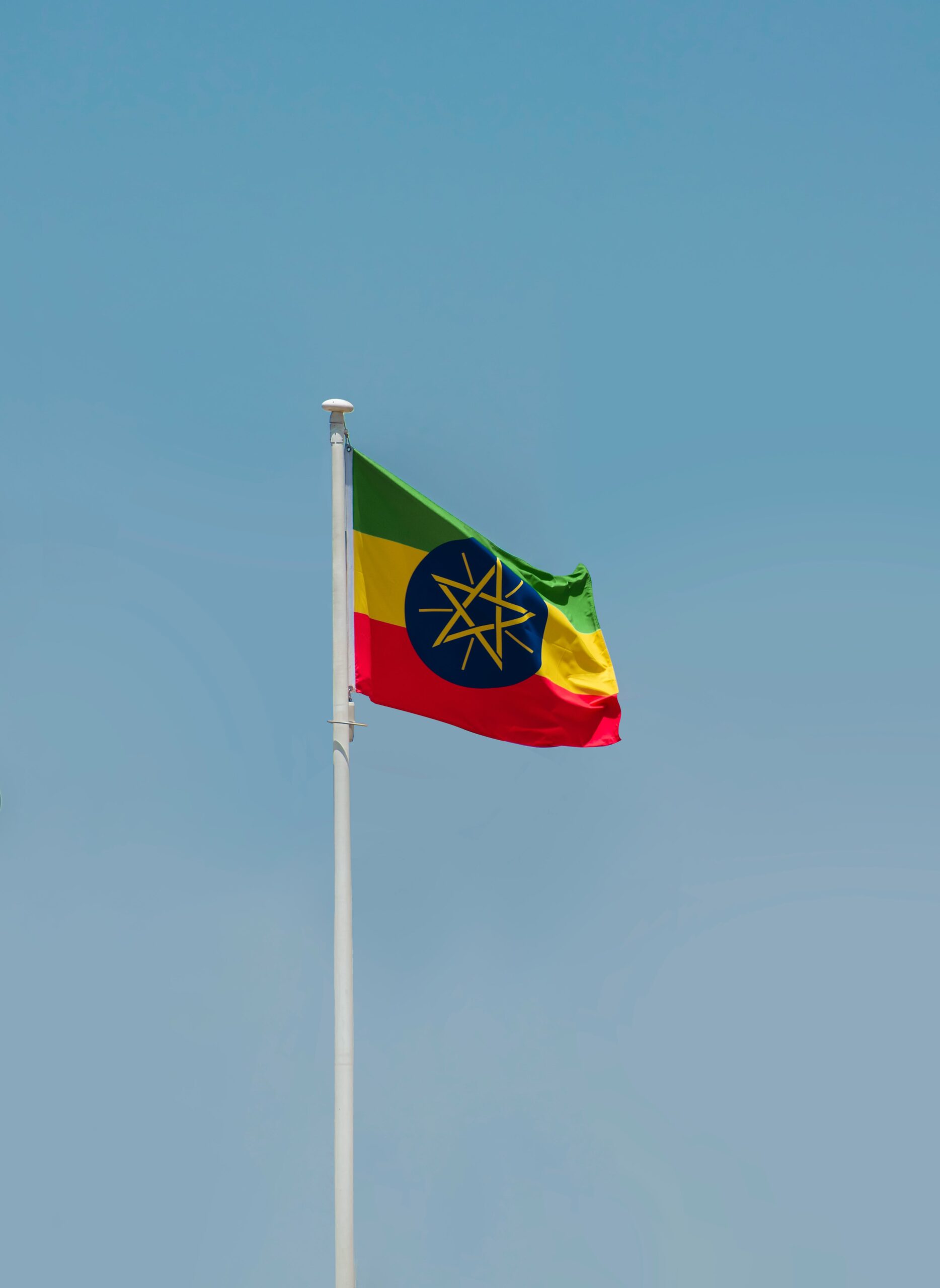Konso Cultural Landscape Ethiopia
The Significance of Konso Cultural Landscape in Ethiopian History
The Konso Cultural Landscape in Ethiopia holds immense historical significance, providing valuable insights into the rich cultural heritage of the Konso people. This unique landscape, located in the Southern Nations, Nationalities, and People’s Region of Ethiopia, has been inhabited for over 400 years, making it a repository of tradition, customs, and beliefs that have been passed down through generations.
One of the key aspects that make the Konso Cultural Landscape significant is its remarkable terraced farming system, which is a UNESCO World Heritage Site. The intricate network of stone-walled terraces serves both practical and cultural purposes, showcasing the ingenuity and perseverance of the Konso people in adapting to a challenging environment. These terraces not only support agriculture but also symbolize the Konso’s social organization and communal values.
Furthermore, the Konso Cultural Landscape reflects the community’s resilience in the face of various historical challenges, including conflicts and environmental pressures. The landscape itself serves as a living testament to the Konso people’s ability to sustain their traditional way of life amidst changing circumstances, highlighting the importance of preserving cultural heritage for future generations.
Moreover, the architectural heritage of the Konso Cultural Landscape, characterized by fortified settlements and engraved wooden statues known as wakas, offers valuable insights into the community’s social structure, belief systems, and artistic expressions. These structures not only serve practical functions but also hold symbolic significance, illustrating the Konso people’s cosmology and worldview.
The Konso Cultural Landscape in Ethiopia stands as a testament to the cultural richness and historical depth of the Konso people. By preserving this unique landscape and its associated traditions, Ethiopia not only safeguards a valuable heritage site but also honors the resilience, creativity, and identity of the Konso community.
Preservation Efforts and UNESCO Recognition of Konso Cultural Landscape
Located in the southern part of Ethiopia, the Konso Cultural Landscape is a UNESCO World Heritage Site that holds significant historical and cultural value. The preservation efforts for this landscape are crucial in maintaining its authenticity and ensuring that future generations can appreciate its heritage. The Konso people have inhabited this area for centuries, and their unique way of life and traditional practices make it a site of great importance.
The UNESCO recognition of the Konso Cultural Landscape came in 2011, acknowledging its outstanding universal value. This recognition has brought global attention to the region, highlighting the need to safeguard its cultural and natural heritage. The Konso Cultural Landscape is a living cultural site, where age-old traditions and customs are still practiced by the local community. UNESCO’s recognition has helped raise awareness about the significance of preserving this cultural landscape for posterity.
Efforts to preserve the Konso Cultural Landscape include stringent conservation measures aimed at protecting its tangible and intangible heritage. Conservationists work closely with the Konso community to ensure that sustainable practices are implemented to safeguard the landscape. This involves promoting eco-friendly tourism initiatives that contribute to the local economy while minimizing environmental impact.
The Konso people play a vital role in the preservation of their cultural landscape. They are actively involved in traditional farming practices, land management, and the upkeep of cultural sites within the landscape. Through their intimate knowledge of the land and its resources, the Konso community contributes to the sustainable preservation of their heritage.
In addition to local efforts, international organizations and governments provide support for the conservation of the Konso Cultural Landscape. Funding, technical expertise, and capacity-building initiatives help strengthen conservation programs and ensure the long-term sustainability of the site. Collaborative efforts between local stakeholders and external partners are essential in maintaining the integrity of the Konso Cultural Landscape.
The preservation efforts and UNESCO recognition of the Konso Cultural Landscape underscore the importance of safeguarding this unique heritage site. Through collaborative conservation endeavors and community engagement, the Konso people continue to uphold their traditional practices and protect their cultural landscape for future generations to cherish and appreciate.
Traditional Konso Cultural Practices and Beliefs
The Konso people, inhabiting the rugged terrain of the southern part of Ethiopia, have a rich cultural heritage that dates back centuries. One of the most fascinating aspects of the Konso culture is their traditional practices and beliefs that have been preserved and passed down through generations. These customs play a significant role in shaping the social structure and daily lives of the Konso community.
One prominent cultural practice among the Konso is the creation of intricately designed stone walled terraces known as ‘moras’ that are used for various purposes. These moras serve as family compounds, livestock enclosures, and meeting places for community gatherings. The construction of these stone structures is a communal effort that symbolizes unity and collaboration among the Konso people.
Another essential aspect of Konso culture is their unique system of governance known as the ‘gadaa’ system. Under this system, Konso society is organized into age sets, with each group assuming specific responsibilities and duties in the community. Leadership roles are rotated among these age sets, ensuring a harmonious balance of power and promoting social cohesion.
Furthermore, the Konso people have a deep-rooted belief system that is closely intertwined with their agricultural practices and daily rituals. They worship a pantheon of gods and ancestral spirits, seeking their protection and guidance in times of need. Rituals and ceremonies are conducted to honor these deities and ancestors, ensuring the fertility of the land and the well-being of the community.
In addition to their agricultural and spiritual practices, the Konso are known for their intricate weaving skills, producing colorful textiles that hold symbolic significance within their culture. These handwoven fabrics are used in clothing, ceremonies, and decorations, reflecting the artistic prowess and cultural pride of the Konso people.
The traditional practices and beliefs of the Konso people offer a glimpse into a vibrant and resilient culture that has withstood the test of time. By preserving and celebrating these customs, the Konso community continues to uphold its unique identity and heritage in the face of modernization and external influences.
Tourist Attractions and Experiences in the Konso Cultural Landscape
The Konso Cultural Landscape in Ethiopia offers a unique and enriching experience for tourists seeking to delve into the rich cultural heritage of the Konso people. As a UNESCO World Heritage Site, the Konso Cultural Landscape is known for its terraced agricultural land, stone-walled settlements, and ancient cultural traditions that have been preserved for centuries.
One of the main attractions in the Konso Cultural Landscape is the terraced agricultural land, which is a testament to the ingenuity and resourcefulness of the Konso people. The intricate system of stone terraces not only prevents soil erosion but also creates a visually stunning landscape that is a marvel to behold. Tourists can explore these terraced fields, learn about the traditional farming practices of the Konso people, and gain a deeper appreciation for their sustainable way of life.
Another highlight of visiting the Konso Cultural Landscape is the opportunity to visit the stone-walled settlements that dot the region. These settlements, known as kishets, are characterized by their unique architecture, with tightly packed stone walls encircling each compound. Tourists can wander through the narrow alleyways, interact with the locals, and witness firsthand the communal way of life that has been passed down through generations.
For those interested in the cultural aspect of the Konso people, a visit to the local mora – a gathering place for community meetings and rituals – is a must. Here, tourists can witness traditional ceremonies, dances, and rituals that offer a glimpse into the spiritual beliefs and social customs of the Konso people. The mora is also a place where oral traditions are passed down, ensuring the preservation of Konso culture for future generations.
Apart from immersing in the cultural heritage of the Konso people, visitors to the Konso Cultural Landscape can also enjoy breathtaking views of the surrounding valleys and hills. The landscape is perfect for nature walks, bird watching, and photography, offering a peaceful retreat from the hustle and bustle of modern life.
Visiting the Konso Cultural Landscape in Ethiopia is not just a journey through time but a chance to connect with a vibrant and resilient community that has thrived in harmony with its surroundings for centuries. From the terraced fields to the stone-walled settlements, every corner of the Konso Cultural Landscape tells a story of tradition, sustainability, and cultural pride. Travelers who venture to this UNESCO World Heritage Site are sure to come away with a deeper appreciation for the Konso people and their way of life.
Environmental Conservation Initiatives in the Konso Region
The Konso Cultural Landscape in Ethiopia not only holds great historical and cultural significance but also boasts rich biodiversity and unique environmental features. Recognizing the importance of preserving this ecological treasure, various environmental conservation initiatives have been implemented in the Konso region.
One of the primary efforts in maintaining the environmental integrity of the Konso Cultural Landscape is through sustainable land management practices. Local communities, together with governmental and non-governmental organizations, have been actively involved in promoting sustainable agricultural techniques, such as terracing and agroforestry, to prevent soil erosion and degradation.
Furthermore, reforestation projects play a crucial role in enhancing the ecological resilience of the Konso region. By planting native trees and vegetation, the area’s biodiversity is protected, and habitats for various plant and animal species are restored. These initiatives not only conserve the natural environment but also contribute to combatting climate change by sequestering carbon dioxide.
In addition to terrestrial conservation efforts, water resource management is another key focus in the Konso region. Sustainable water harvesting and irrigation systems are being implemented to ensure the availability of water for agricultural activities while preventing water scarcity and promoting efficient water use.
Moreover, community-based conservation programs have been established to engage local residents in environmental protection and sustainable resource management. By involving the Konso people in decision-making processes and equipping them with the knowledge and skills for conservation, these initiatives empower the community to be stewards of their natural heritage.
Collaboration with international conservation organizations and adherence to UNESCO’s guidelines for World Heritage Sites have further strengthened the commitment to preserving the Konso Cultural Landscape’s environmental values. Through a combination of traditional ecological knowledge and modern conservation practices, the Konso region continues to thrive as a model for sustainable development and environmental preservation.
The environmental conservation initiatives in the Konso region are essential not only for safeguarding the unique ecosystems and biodiversity of the area but also for ensuring the long-term sustainability of the Konso Cultural Landscape for future generations to appreciate and enjoy.
Conclusion
In exploring the Konso Cultural Landscape in Ethiopia, it becomes evident that this UNESCO World Heritage Site holds immense significance in Ethiopian history and cultural heritage. The landscape is not only a testament to the ancient traditions and customs of the Konso people but also highlights their resilience and adaptability over the centuries. The preservation efforts undertaken to safeguard this unique cultural landscape have been crucial in ensuring its survival for future generations to experience and appreciate.
The recognition of the Konso Cultural Landscape by UNESCO further underscores its importance on a global scale. This prestigious acknowledgment serves as a reminder of the need to protect and promote cultural diversity worldwide. By safeguarding sites like the Konso Cultural Landscape, we are not only preserving tangible heritage but also intangible elements such as traditional practices, beliefs, and social systems that are invaluable to humanity as a whole.
Traditional Konso cultural practices and beliefs play a central role in shaping the identity of the Konso people. From intricate terracing techniques to a complex social organization based on age sets, the Konso community exemplifies a harmonious relationship between humans and their environment. These age-old traditions offer valuable insights into sustainable living practices and demonstrate how indigenous knowledge can contribute to modern-day environmental conservation efforts.
For tourists visiting the Konso Cultural Landscape, a myriad of attractions and experiences await. From exploring ancient stone walled villages and ceremonial grounds to interacting with local communities and witnessing traditional ceremonies, visitors have the opportunity to immerse themselves in the rich cultural tapestry of the Konso people. The landscape’s rugged terrain and breathtaking views provide a picturesque backdrop for cultural exploration and outdoor adventures, making it a must-visit destination for those seeking a unique and authentic travel experience.
In addition to its cultural significance, the Konso region is also a hotspot for environmental conservation initiatives. Efforts to protect the landscape’s biodiversity and fragile ecosystems have been paramount in ensuring the sustainability of the region’s natural resources. By promoting sustainable land management practices and raising awareness about the importance of environmental stewardship, the Konso community is setting an example for conservation efforts in a rapidly changing world.
The Konso Cultural Landscape stands as a testament to the enduring heritage of the Konso people and their profound connection to the land. Through a combination of cultural preservation, tourism development, and environmental conservation, this unique landscape continues to inspire visitors and locals alike. By recognizing and celebrating the significance of the Konso Cultural Landscape, we honor not only the past but also the future of this extraordinary heritage site.





